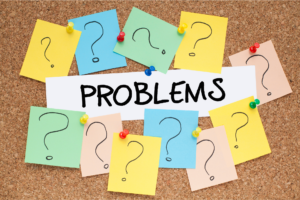Top 10 Online Reputation Mistakes to Avoid
Your online reputation is more crucial than ever in the hyperconnected digital age of today. What appears online about you can have a huge impact, whether you’re a business, a professional, or an individual. Your online reputation is essential to how people view you due to the information they can find about you online. This can range from reviews of businesses and social media posts to news articles, blog posts, and more.
Why is it so important to keep a positive online reputation? It may impact consumer trust, purchasing behavior, and overall brand perception for businesses. For professionals, it may affect networking opportunities, career prospects, and reputation within your industry. It can affect a person’s interpersonal connections, reputation in the community, and even their prospects for the future.
Online reputation is often neglected or mishandled. It entails taking deliberate, proactive actions to cultivate a positive image and skillfully handling unfavorable perceptions. A lot of people unknowingly make mistakes that damage their online reputation.
We’ll examine the top ten online reputation mistakes in this article. Knowing how to avoid these common pitfalls will make moving around the online world easier and maintain a positive reputation.
Avoid these 10 online reputation mistakes
1. Ignoring your online reputation
Not giving your online presence enough attention is one of the biggest errors you can make. In a world where most people access the internet for information, it can be detrimental to not have a strong and positive online presence. If you don’t define yourself online, other people will, which might not always be to your advantage.
Missed chances for new business, connections, or employment are some potential effects of this error. You might also lose control over your narrative if someone else defines it.
Make sure you’re active online to prevent this. Make and keep profiles on social media sites. Update your website or blog. Join and participate in online forums related to your work or interests.
2. Ignoring complaints or giving them a poor response
In the digital world, unfavorable reviews are inevitable. However, ignoring them or responding poorly to them can worsen the problem and damage your reputation.
Negative reviews can result in credibility and trust being lost if they are not addressed. On the other hand, responding improperly could harm your reputation and your company.
Dealing with negative reviews professionally and constructively is the best way to handle them. Empathize with others, provide solutions, and use criticism to get better. Even a disgruntled customer can become devoted to properly handling a negative review.
3. Transparency issues
In the digital age, transparency is essential. Your audience will probably find out if you’re not being open and honest, which could seriously harm your reputation.
This may cause your audience to become skeptical of you and lose interest in what you have to say.
Make sure your online communication is always open and transparent to prevent this. If a mistake is made, admit it, apologize, and explain what you will do to fix it. Building trust and improving your online reputation requires authenticity.
There are many potential pitfalls along the path to maintaining a solid online reputation. However, being aware of these errors will enable you to avoid them. In the sections that follow, let’s examine the remaining serious errors.
4. Ignoring the status of your online reputation
It can escalate problems or fester unnoticed if you fail to regularly monitor what is being said about you or your brand online. Significant reputational harm and a loss of trust may result from this.
You can manage the situation before it gets out of hand by monitoring it to identify negative comments or reviews at an early stage. In order to modify your strategy as necessary, it also helps you understand how the general public feels about you or your brand.
Set up Google alerts for your name or brand to monitor your online reputation, use social listening tools, and frequently check review websites.
5. Ignoring problems in public
 While dealing with complaints or issues privately may feel instinctive, failing to do so when they arise in public can result in rumors, speculation, or the perception of indifference or guilt.
While dealing with complaints or issues privately may feel instinctive, failing to do so when they arise in public can result in rumors, speculation, or the perception of indifference or guilt.
Publicly addressing problems demonstrates your accountability, appreciation for criticism, and dedication to finding solutions. Doing this can improve your audience relations and reputation.
Ensure you are open and receptive to public criticism or complaints and always follow up to demonstrate how the problem has been resolved.
6. Disparate platform branding with inconsistent branding
Your audience may become confused and perceive you or your brand as being unprofessional or disorganized if your branding is inconsistent across various platforms. This may affect how your audience views you and may weaken the message associated with your brand.
Ensure your branding is consistent across all platforms, including your logo, color scheme, tone of voice, and messaging, to prevent this. This promotes the development of a potent, recognizable brand identity.
7. Neglecting the importance of SEO
SEO (search engine optimization) is essential to manage your online reputation. Negative content could harm your reputation if you ignore it, and it ranks highly in search results for your name or brand.
Positive content about you or your brand may rank higher in search results thanks to sound SEO techniques, while any negative content may be pushed down.
By adding pertinent keywords to your website and content, constructing high-quality backlinks, and consistently creating new, useful content, you can invest in SEO.
8. Sharing inappropriate or controversial content
Sharing inappropriate, offensive, or controversial content is one of the quickest ways to harm your online reputation. It might result in an immediate backlash, boycotts, and a lingering bad reputation.
Ensure the content you share respects your diverse audience and is consistent with your brand values to prevent this. Before publishing, always recheck your work, and err on the side of caution.
9. Failing to interact with your audience
Customers anticipate brand and personal interaction in today’s social media-driven world. Neglecting audience feedback or not responding to messages can give the impression that you are cold or uncaring, harming your online reputation.
Engagement can help you establish connections with your audience, increase adherence, and enhance your online reputation. Make it a habit to reply to messages and comments, as well as to interact with the content that your audience posts.
10. ignoring the power of user-generated content
 User-generated content (UGC), such as reviews, endorsements, and social media posts, can greatly impact how people perceive you online. Neglecting or not promoting UGC can cost you opportunities for effective word-of-mouth advertising and good reputation building.
User-generated content (UGC), such as reviews, endorsements, and social media posts, can greatly impact how people perceive you online. Neglecting or not promoting UGC can cost you opportunities for effective word-of-mouth advertising and good reputation building.
Encourage pleased customers to post reviews or share their experiences on social media to take advantage of UGC. In order to foster community and show appreciation, never forget to acknowledge and share UGC.
It is obvious that proactive and meticulous planning are necessary for effective online reputation management after reviewing the top 10 online reputation mistakes and how to avoid them. We’ll explore the long-term repercussions of these errors and the significance of upholding a positive online reputation.
The Value of Avoiding These Errors
Anyone looking to succeed in today’s digital environment must comprehend and avoid these online reputation mistakes. This is not just a good idea. Managing your online reputation incorrectly can have detrimental long-term consequences.
Rebuilding a damaged reputation can take years; in some cases, the damage may be beyond repair. A bad reputation for a company could lead to clientele loss, lower sales, or even business closure. For professionals, it might imply losing networking opportunities, job opportunities, and credibility in your industry. The repercussions for an individual could be as severe as social exclusion, broken relationships, and diminished prospects.
It’s important to create positive outcomes and avoid negative ones to maintain a positive online reputation. A positive reputation can increase credibility, strengthen bonds between people, create new opportunities, and ultimately pave the way for success in a number of ways.
Taking control of your online reputation is essential at a time when a single online search can alter how someone perceives you. The first step to successfully managing and enhancing your reputation online is to take preventative measures to avoid the errors covered in this article.
Conclusion
Managing your online reputation is more important than ever in the current digital era. We’ve looked at the top 10 errors that can damage your online reputation, from ignoring the value of user-generated content to neglecting your online presence. We hope that now that you are aware of these pitfalls, you will be better able to navigate the digital environment.
Managing your online reputation takes vigilance, transparency, engagement, and consistency. It entails maximizing the positives as well as minimizing the negatives. As we’ve seen, having a positive online reputation can help you find opportunities, build trust, and open doors.
Therefore, take a moment to assess your current online reputation management procedures. Do you have any room for improvement? Are you committing any of these usual errors? If so, right now is the ideal time to begin making adjustments. Manage your online reputation proactively because, in the digital age, it serves as your offline reputation.




